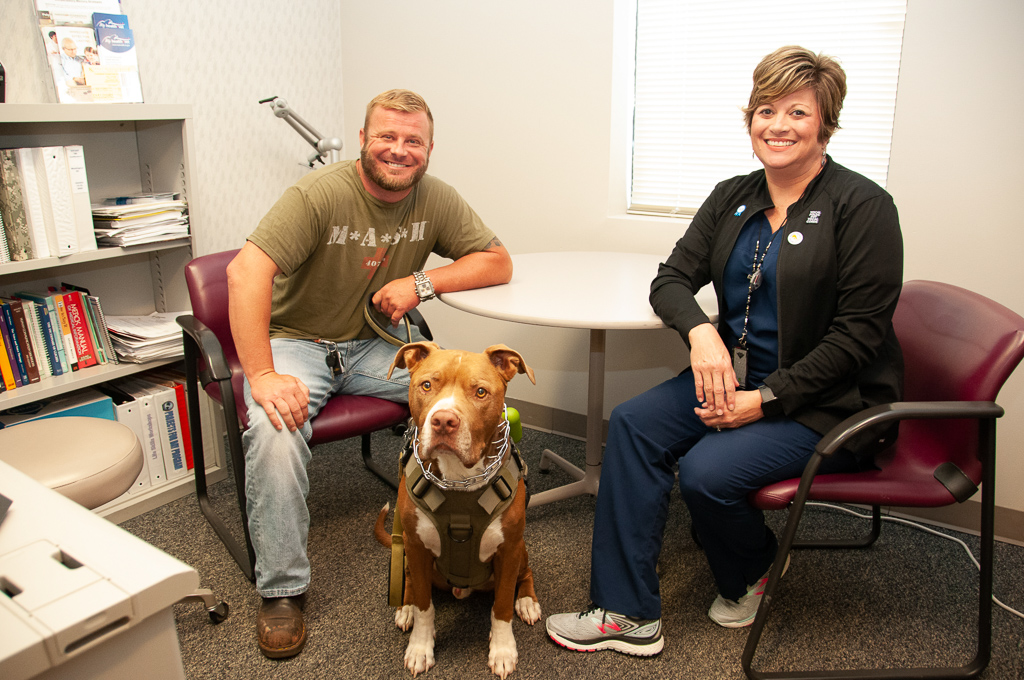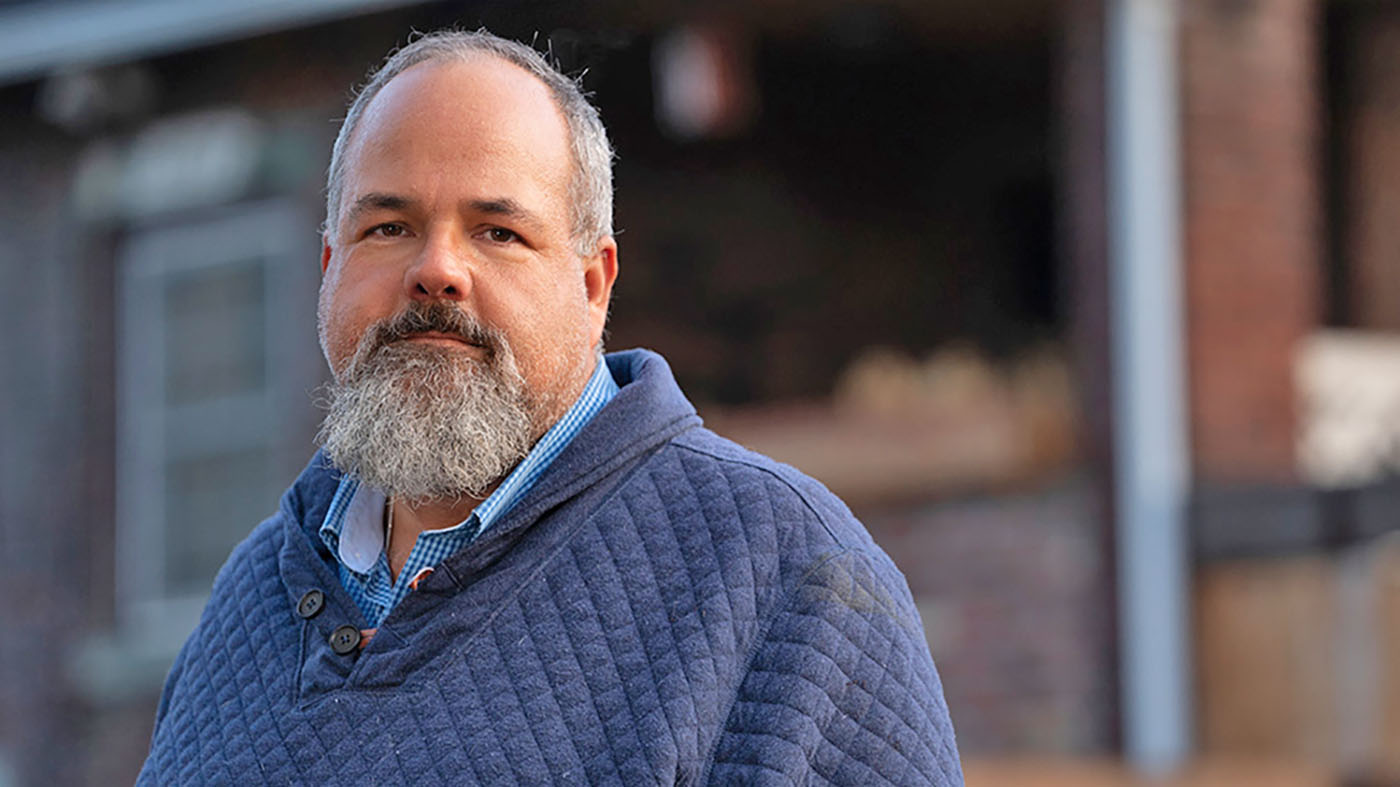In November 2005, Shane Nuttle deployed from Fort Campbell, KY, to Forward Operating Base Falcon, located just outside Baghdad, with the 506th Infantry Regiment of the 101st Airborne.
On January 28, 2006, the paratrooper from Pawnee, Oklahoma was on patrol with the 2nd Battalion when an improvised explosive device (IED) detonated near his Humvee and took the lives of two soldiers.
Army medics worked to save unconscious Nuttle’s life and quickly transported him to an Army hospital in Baghdad. He was then flown to Landstuhl, Germany. For two months, Nuttle remained in a coma before regaining consciousness at Walter Reed Army Medical Center in Washington, D.C.
“I don’t remember the day of the injury,” said Nuttle, who suffered a traumatic brain injury, ruptured spleen, broken jaw and several broken bones in his face. “From what I’ve been told by other people in my platoon, the IED’s were completely unexpected and there was nothing that could have been done to prevent it.”
The traumatic brain injury affected his speech, vision, balance, coordination and cognitive thinking. His injuries were so extensive that doctors said he would have to undergo intensive rehabilitation just to live independently.
In March 2006, Nuttle was admitted to the VA Polytrauma Rehabilitation Center at the Minneapolis VA Medical Center, where he underwent comprehensive inpatient treatment and had to relearn how to do basic things such as eating, talking and walking.
“Basically, I had to change every aspect of the way I lived my life before the IED,” said Nuttle. “It pretty much affected everything in one way or another.”
In May 2006, he moved back home to Pawnee where the Army allowed him to complete the remainder of his enlistment, which did not end until 2009.
He helped his father on the family’s cattle ranch and received treatment from the Eastern Oklahoma VA Health Care System.
In 2010, Nuttle began working with Dr. Jared Benge, VA neuropsychologist at the Jack C. Montgomery VA Medical Center, who helped him start thinking about a plan for life after rehabilitation. In 2011, he began working with Natalie Hartgrave-Ransier, a VA Speech Pathologist at the Ernest Childers VA Outpatient Clinic, who also worked with Nuttle on his life goals.
With encouragement from VA, Nuttle decided to enroll in college.
“His goal was to spend 20 years in the military,” said Hartgrave-Ransier. “He never pictured himself going to college.”
“Brain injury recovery is different for everyone, and the ones who make the most improvement are the ones who are willing to accept that ‘Yes, something really bad happened, but it’s not going to keep me from moving forward in life.’ Their attitude plays such a big part in how they recover and he’s definitely been the role model for that.”
Benge and Hartgrave-Ransier encouraged Nuttle to start small and enroll in classes locally at Tulsa Community College.
“For the first four weeks of the semester, I didn’t like being in the classroom setting,” said Nuttle. “I was uncomfortable. I got distracted easily and it was hard to focus on one thing or somebody speaking.”
Hartgrave-Ransier taught Nuttle study skills and organization techniques such as setting reminders in his smartphone and writing out checklists before beginning a task.
Nuttle not only completed two classes, but received an “A” in each class.
“Dr. Benge and Natalie helped me want to live a life somewhat close to what I used to live,” said Nuttle during an interview in 2013. “The VA has done a lot.”
College in San Antonio, Texas
Nuttle then applied and was accepted into the Wounded Warrior Project TRACK program in San Antonio. The 12-month program helps Veterans set educational goals while also supporting goals around personal health and wellness, mental health and career development.
He enrolled at Northwest Vista College and completed two semesters followed by a 16-month sports medicine internship. Then Nuttle had to apply the skills he learned in TRACK to earn his degree.
“During TRACK, it seemed a lot easier because everything was already set up for you,” said Nuttle. “College without the TRACK program was very tough. I bought a dry erase board and I had to write times to study and time to eat. I had times for everything.”
Nuttle said he probably had to study twice or three times as hard as the average student.
“When it came to finals and big tests, college was very difficult because I have memory problems from my traumatic brain injury,” he said.
After Northwest Vista College, he enrolled at The University of Texas at San Antonio (UTSA). At both colleges, Nuttle received support from VA’s VetSuccess on Campus program. As part of the VA Vocational Rehabilitation and Employment, vocational rehabilitation counselors help Veterans transition to college life and provide on campus services and counseling.
At UTSA, Wendy Foster, one of the VA counselors, provided services and encouragement for Nuttle.
“Wendy helped me a lot,” said Nuttle. “Whenever I got too stressed, I knew I could go in and talk to her about it.”
Foster said one of the keys to his success was asking for help.
“Shane is an extremely effective self-advocate,” said Foster. “He does a great job of recognizing when he can do things on his own and he does a great job of identifying when he might need help and is very proactive about asking for it.”
Foster worked with UTSA to provide disability accommodations for Nuttle and credited the college for being very supportive of Veterans on campus.
“UTSA did great with him,” said Foster. “The staff here were incredibly excited when he was ready to graduate, and we miss having him here now.”
Throughout his time in San Antonio, he continued to receive words of encouragement from Hartgrave-Ransier.
“I communicated with Natalie quite a bit because whenever I got too stressed or things seemed to overwhelm me, or when I was thinking about quitting school, she was a voice of reason: ‘Don’t do that, Shane.’”

Natalie Hartgrave-Ransier (left), a VA Speech Pathologist at the Ernest Childers VA Outpatient Clinic in Tulsa, traveled to San Antonio to celebrate Nuttle’s graduation. Hartgrave-Ransier worked with Nuttle for two years to help him improve his speech and encouraged him to attend college.
In May 2019, 13 years after his injury in Iraq, Nuttle earned a bachelor’s degree in multidisciplinary studies.
“It’s been a long journey,” said Nuttle. “It feels great. A lot of people thought I would never do it.”
To show her support, Hartgrave-Ransier traveled to San Antonio to watch Nuttle graduate.
“Natalie being there meant a lot,” said Nuttle. “She helped start and see me through this whole transition.”
Hartgrave-Ransier said she was confident Nuttle could overcome his injuries and complete his degree.
“When Dr. Benge and I recommended him to follow this path, I knew it was going to take a lot of hard work,” she said. “But I knew he had the tenacity and the passion to see it through. I was so happy to have been there to see him and meet his battle buddies that were actually with him the day he was injured in battle. They were tearful and so proud. It was an amazing experience.”
By graduating, Nuttle also became the first person in his family to earn a degree.
“I think that was one of the things that really motivated him, besides overcoming his brain injury,” said Hartgrave-Ransier. “His goal was to be the first in his family to graduate from college.”
Foster also said she was proud of Nuttle for achieving his educational goals.
“He did an amazing job of working with a very substantial set of challenges and consistently kept a great attitude,” said Foster. “I was incredibly excited for him to graduate.”
For now, life has brought Nuttle back to Pawnee while he applies for jobs. He hopes to begin a new career with the National Park Service in Colorado, Wyoming or Northern New Mexico and become either a Park Ranger or Park Guide.
“For the weather and the elk,” said Nuttle with a laugh. “I like to hunt.”
Nate Schaeffer is a public affairs specialist at the Jack C Montgomery VA Medical Center
Topics in this story
More Stories
On Aug. 7, 2025, VA commemorated the groundbreaking of the new Harry S. Truman Memorial Veterans’ Hospital community-based outpatient clinic. This state-of-the-art facility is poised to significantly enhance health care services for the local Veteran population.
James A. Haley Veterans’ Hospital (JAHVH) Chief of Innovation Dr. Indra Sandal was awarded the Federal Excellence in Healthcare Management Award as part of the 29th annual Joint Federal Sector Awards.
Be ready before a suicide crisis by learning about resources that are available. You don’t have to face it alone.






I suffer from PTSD and TBI injuries. It can be really hard to concentrate on normal tasks. I congratulate you for getting your degree